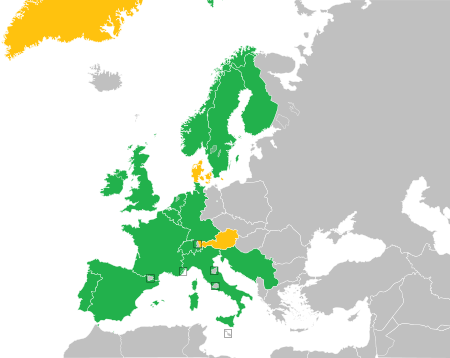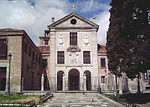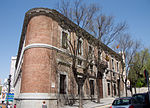Eurovision Song Contest 1969

The Eurovision Song Contest 1969 was the 14th edition of the annual Eurovision Song Contest. It took place in Madrid, Spain, following the country's victory at the 1968 contest with the song "La, la, la" by Massiel. Organised by the European Broadcasting Union (EBU) and host broadcaster Televisión Española (TVE), the contest was held at the Teatro Real on Saturday 29 March 1969 and was hosted by Spanish television presenter and actress Laurita Valenzuela. Sixteen countries took part in the contest with Austria deciding not to participate this year. At the close of voting, four countries were controversially declared joint-winners: the United Kingdom with "Boom Bang-a-Bang" by Lulu, Spain with "Vivo cantando" by Salomé, the Netherlands with "De troubadour" by Lenny Kuhr, and France with "Un jour, un enfant" by Frida Boccara. It was the first time in the history of the contest that a tie had occurred, and as there was no tiebreaker rule in place at the time, all four countries were declared joint winners. France's win was their fourth, thus making it the first country to win the contest four times. The Netherlands' win was their third. Spain and the United Kingdom each won for the second time, with Spain becoming the first country to win the Eurovision Song Contest twice in a row.
Excerpt from the Wikipedia article Eurovision Song Contest 1969 (License: CC BY-SA 3.0, Authors, Images).Eurovision Song Contest 1969
Plaza de Isabel II, Madrid
Geographical coordinates (GPS) Address Website Nearby Places Show on map
Geographical coordinates (GPS)
| Latitude | Longitude |
|---|---|
| N 40.418333333333 ° | E -3.7102777777778 ° |
Address
Teatro Real
Plaza de Isabel II
28013 Madrid (Centro)
Community of Madrid, Spain
Open on Google Maps











